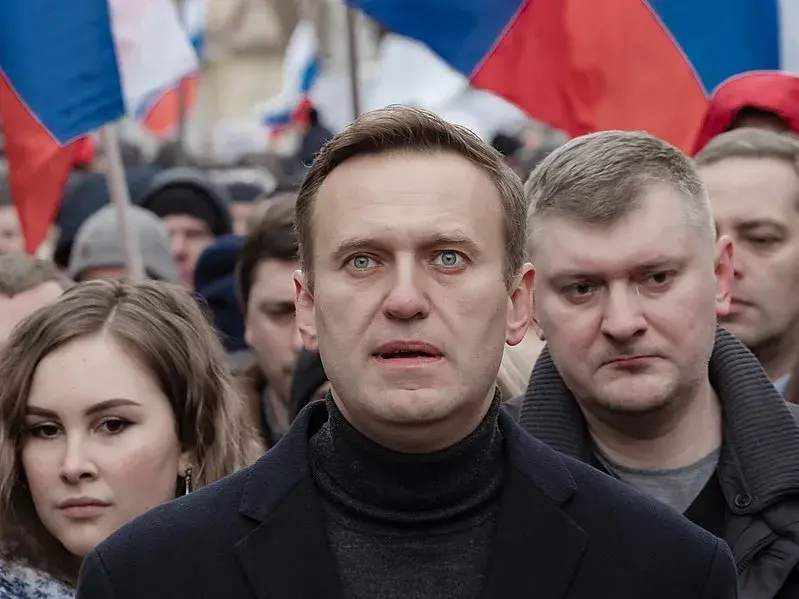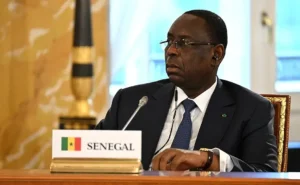Navalny was the main rival of Vladimir Putin and a strong critic of the corruption of the Russian elites.

Alexei Navalny, the leader of the Russian opposition, passed away this Friday in an Arctic prison where he had been since last December, the prison service of the Yamalo-Nenets region announced. He was serving his sentence there.
The prison service said that they tried to resuscitate him, but it was unsuccessful and emergency doctors confirmed his death. The causes of the death are still unknown.
Navalny was sentenced to 19 years in prison for “extremism.”
The Kremlin said it did not know the causes of Navalny’s death. The spokesman for the Russian Presidency, Dmitri Peskov, said this shortly after the news broke.
“The doctors have to explain it,” the spokesperson said, according to the TASS agency, after the prison service confirmed the death of the politician. He also said that the president, Vladimir Putin, was “informed.”
Navalny’s spokesperson, Kira Yarmish, said that the opposition’s allies did not have confirmation of his death and that his lawyer was on his way to Yamalo-Nenets.
In December, Navalny was moved from a prison in the Vladimir region, less than 200 kilometers from Moscow, to a prison in the Arctic Circle, near the Ural mountains. The prison was in Jarp, a town with about 6,000 people, almost 2,000 kilometers from Moscow or about 45 hours by train from the Russian capital.
Jarp was less than 50 kilometers from Salekhard, the administrative capital of this region that was bigger than France, but had only half a million people.
One of his allies in exile, Ivan Zhdanov, said that the prison was called “Polar Wolf” and was one of the most remote prisons in Russia.
Navalny was the main rival of Vladimir Putin and a strong critic of the corruption of the Russian elites. He wanted to keep challenging the Kremlin after he survived a poisoning. He decided to go back to Moscow in January 2021, where he was arrested as soon as he landed at the airport.
It seemed very unlikely that he would return to Russia in August 2020, when he flew to Berlin on a medical plane. A few days before, he had fallen sick on a plane in Siberia and was taken to a Russian hospital for 48 hours.
After three weeks in a coma, three European labs said that the main Russian opposition figure was poisoned by a nerve agent from the Novichok group, made in the Soviet era for military use.
After he survived this supposed murder attempt, Navalny fought back. In mid-December 2020, he released a phone call where he tricked one of the agents of the Russian security services (FSB) into admitting that they tried to poison him.
Navalny said that the poisoning was ordered by President Vladimir Putin. The president denied all the accusations.
In 2019, the lawyer was already taken to a hospital from the prison where he was serving a sentence after an administrative arrest, because his team said he was poisoned, having a strange swelling of the eyelids and many abscesses in the neck, back, torso and elbows. Doctors then said that he had a serious allergic reaction and sent him back to prison the next day.
In 2017, he suffered an eye injury when some men splashed an antiseptic on his face.
The European Court of Human Rights ruled that Russia’s arrests and detention of Navalny in 2012 and 2014 were politically driven and breached his human rights, a decision Moscow disputed.
He was also imprisoned several times for breaking the laws on protests.
He always denied his legal verdicts and said that nothing could stop his determination, not even dangers to his and his family’s security.
“I have been in politics for a long time, I get arrested often, it is part of life. I do the work I like, people back me, I have many supporters. What can make a man happier? ”He said on various occasions.
The United States and the European Union showed worry about Navalny’s situation, the Kremlin’s main adversary. On December 7, the opposition leader urged from prison to vote against Putin in the March 17, 2024 elections.
Navalny also launched a website (neputin.org) that asked Russians to back any presidential candidate, except Putin.







